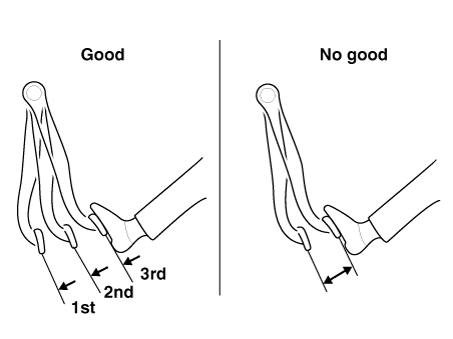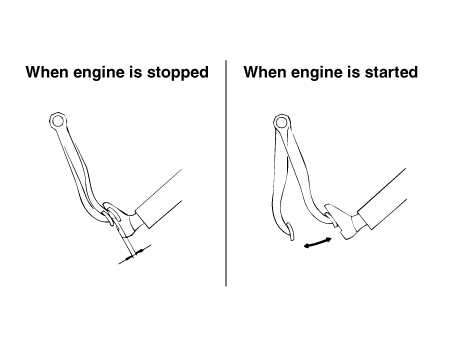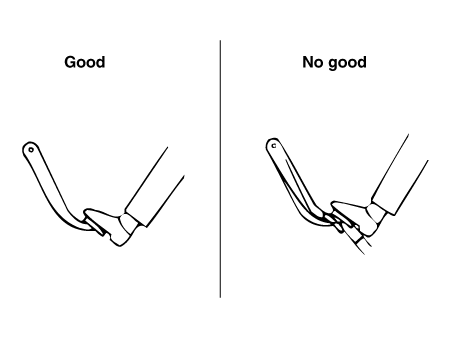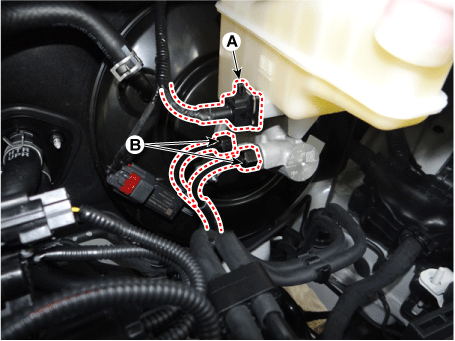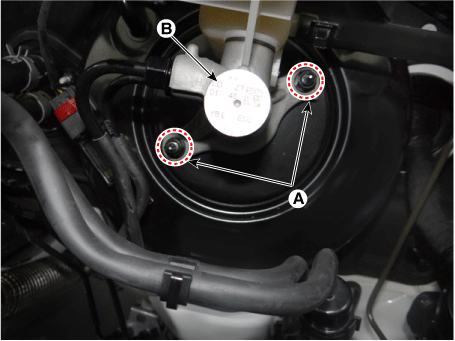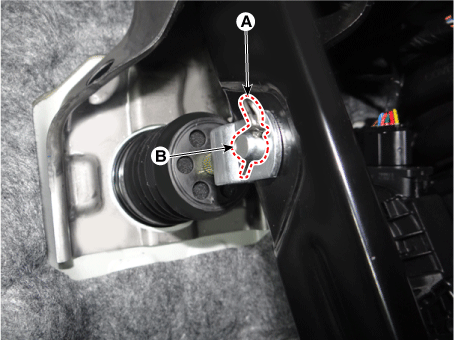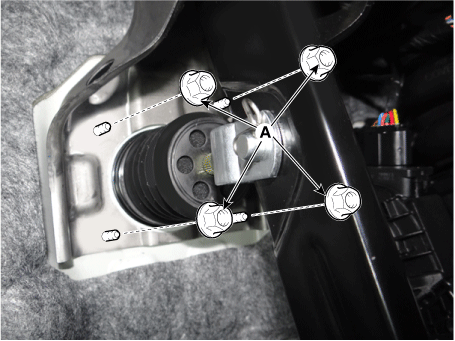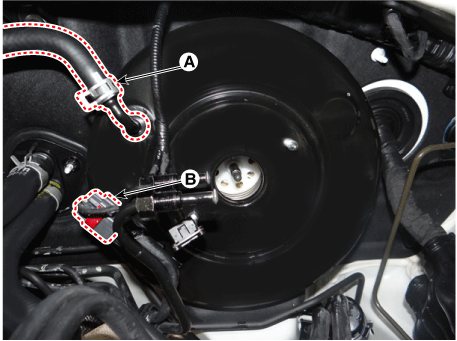Kia Rio: Brake System / Brake Booster
Components and components location
| Components |
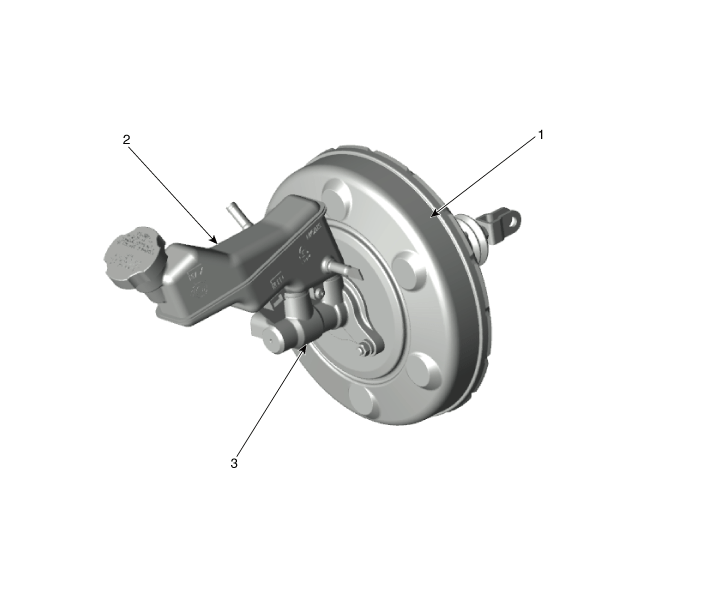
| 1. Brake booster assembly 2. Reservoir |
3. Master cylinder |
Repair procedures
| Brake Booster Operating Test |
For simple checking of the brake booster operation, carry out the following tests.
| 1. |
Run the engine for one to two minutes, and then stop it. If the pedal depresses fully initially but gradually becomes higher in the successive attempts, the booster is operating properly. If the pedal height remains unchanged, the booster is inoperative.
|
| 2. |
With the engine stopped, step on the brake pedal several times. Then step on the brake pedal and start the engine. If the pedal moves downward slightly, the booster is in good condition. If there is no change, the booster is inoperative.
|
| 3. |
With the engine running, step on the brake pedal and then stop the engine. Hold the pedal depressed for 30 seconds. If the pedal height does not change, the booster is in good condition, and if the pedal rises, the booster is inoperative. If the three tests above are satisfied, the booster performance can be considered as in good condition. Even if one of the above three tests is unsatisfactory, check the check valve, vacuum hose and booster for malfunction.
|
| Removal |
| 1. |
Remove the battery and battery tray. D 1.4 U2 TCI (Refer to Engine Electrical System - "Battery") G 1.0 T-GDI (Refer to Engine Electrical System - "Battery") G 1.2 MPI (Refer to Engine Electrical System - "Battery") G 1.4 MPI (Refer to Engine Electrical System - "Battery") |
| 2. |
Remove the air cleaner assembly. D 1.4 U2 TCI (Refer to Engine Mechanical System - "Air cleaner") G 1.0 T-GDI (Refer to Engine Mechanical System - "Air cleaner") G 1.2 MPI (Refer to Engine Mechanical System - "Air cleaner") G 1.4 MPI (Refer to Engine Mechanical System - "Air cleaner") |
| 3. |
Remove the brake fluid from the master cylinder reservoir with a syringe.
|
| 4. |
Disconnect the brake fluid level switch connector (A), and disconnect the brake tube (B) from the master cylinder by loosening the tube flare nut.
|
| 5. |
Remove the master cylinder (B) from the brake booster after loosening the mounting nuts (A).
|
| 6. |
Remove the crash pad lower panel. (Refer to Body - "Crash Pad Lower Panel") |
| 7. |
Remove the snap pin (A) and clevis pin (B).
|
| 8. |
Remove the brake booster mounting nuts (A).
|
| 9. |
Remove the brake booster after disconnect the vacuum hose (A) and ISG connector (B).
|
| Inspection |
| 1. |
Inspect the check valve in the vacuum hose, intensifier and the connecting section.
|
| 2. |
Check the boot for damage. |
| Installation |
| 1. |
Install in the reverse order of removal.
|
| 2. |
After installation, bleed the brake system. (Refer to Brake system - "Brake System") |
 Brake System
Brake System
Repair procedures
Operation and Leakage Check
Check all of the following
items:
Component
Procedure
Brake Booster (A)
Check brak ...
 Master Cylinder
Master Cylinder
Components and components location
Components
1. Brake booster assembly
2. Reservoir
3. Master cylinder
Repair procedures
Removal
...
Other information:
Kia Rio 2017-2020 YB Owners Manual: Cup holder
WARNING - Hot liquids Do not place uncovered cups of hot liquid in the cup holder while the vehicle is in motion. If the hot liquid spills, you may burn yourself. Such a burn to the driver could lead to loss of control of the vehicle. CAUTION Keep your drinks sealed while driving to prevent s ...
Kia Rio 2017-2020 YB Owners Manual: Armed stage
Using the smart key Park the vehicle and stop the engine. Arm the system as described below. 1.Turn off the engine. 2.Make sure that all doors (and liftgate) and the engine hood are closed and latched. 3.• Lock the doors by pressing the button of the front outside door handle with the smar ...

